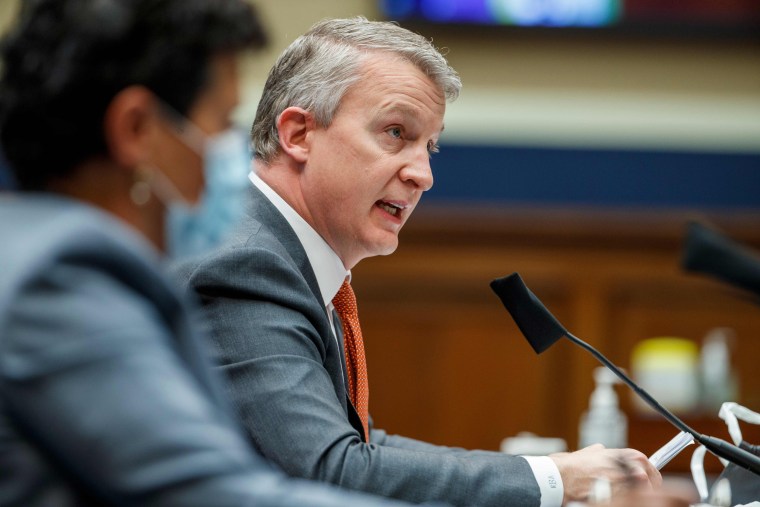Up until very recently, Dr. Rick Bright was the deputy assistant secretary for preparedness and response and director of the Biomedical Advanced Research and Development Authority. The scientist has alleged, however, that he was ousted for resisting the White House's political agenda on the coronavirus pandemic.
It was against this backdrop that Bright delivered sworn testimony on Capitol Hill yesterday, covering quite a bit of ground. There was, however, one especially memorable line from the whistleblower's appearance.
Warning that Trump's decision to treat the pandemic as a political crisis rather than as a generational public-health event has undermined the administration's response. "We don't have a single point of leadership right now for this response, and we don't have a master plan for this response," Bright said.
Well, sure, when one puts it that way, it sounds bad.
The fact that Donald Trump and his team don't appear to have an actual plan to deal with the crisis has slowly become one of the nagging sticking points of the ongoing crisis. On Meet the Press this past weekend, NBC News' Chuck Todd asked where the White House's plan is.
"It is not partisan to say the administration's response to the coronavirus pandemic has been both confused and confusing, and it raises troubling questions: What's the plan for testing and contact tracing, or does the government think that's just too hard to do without a breakthrough? What's the plan for maintaining social distancing as states reopen? What's the plan for making people feel confident about returning to work when even the White House can't keep the virus out? And what's the plan for treating this pandemic as our greatest national crisis since the Second World War? In other words: What's the plan?"
Vox's Ezra Klein had a related piece this week, noting that two months into the crisis, "the White House does not have a plan, a framework, a philosophy, or a goal."
The problem isn't that Trump is pursuing a misguided policy agenda; it's that Trump, even now, doesn't appear to have a policy agenda.
Dr. Michael Osterholm, director of the Center for Infectious Disease Research and Policy, told Ezra, "It's like the Lewis Carroll line, 'If you don't know where you're going, any road will get you there.' Well, I don't know where we're going."
The president obviously doesn't know, either. Trump's ignorance is staggering, but it's only part of the equation. Just as jarring is his post-policy indifference. The White House doesn't have "a plan, a framework, a philosophy, or a goal" because it's led by officials who don't see the value in plans, frameworks, philosophies or goals. (Those who find this compelling may be interested in my upcoming book.)
It's not too late for the administration to choose a more sensible course, but given everything we've seen since the crisis began, is there any reason to feel optimism?

